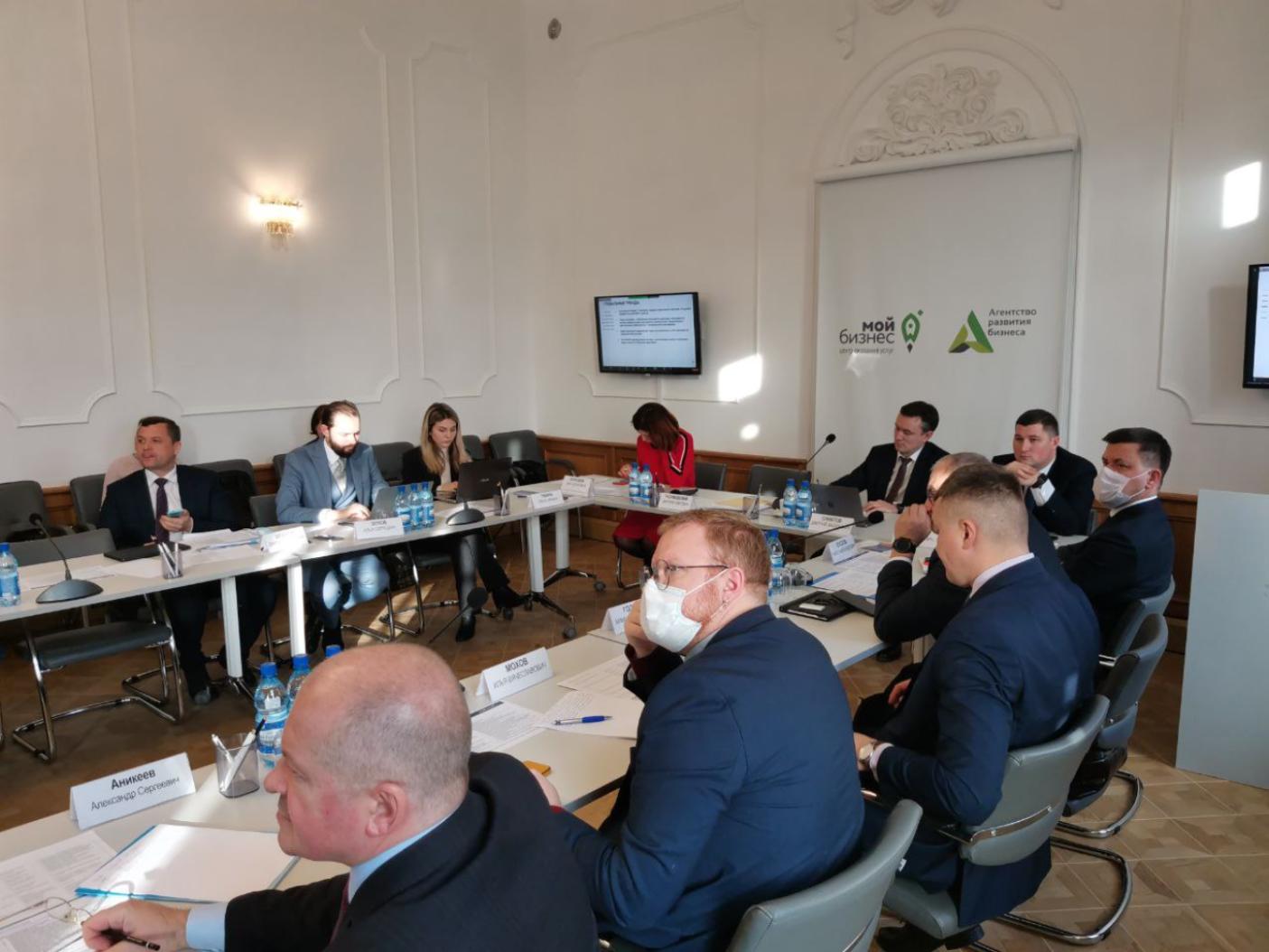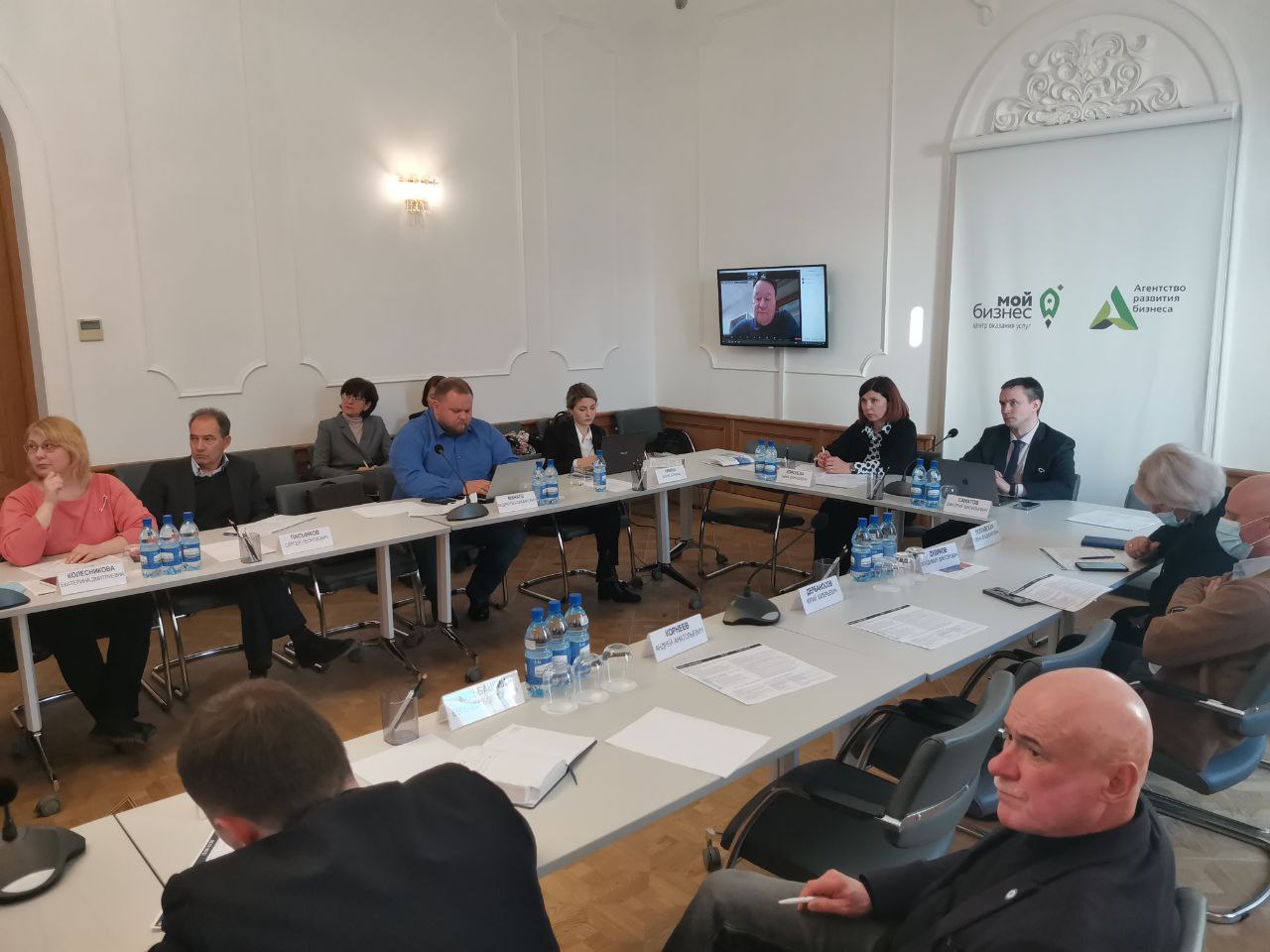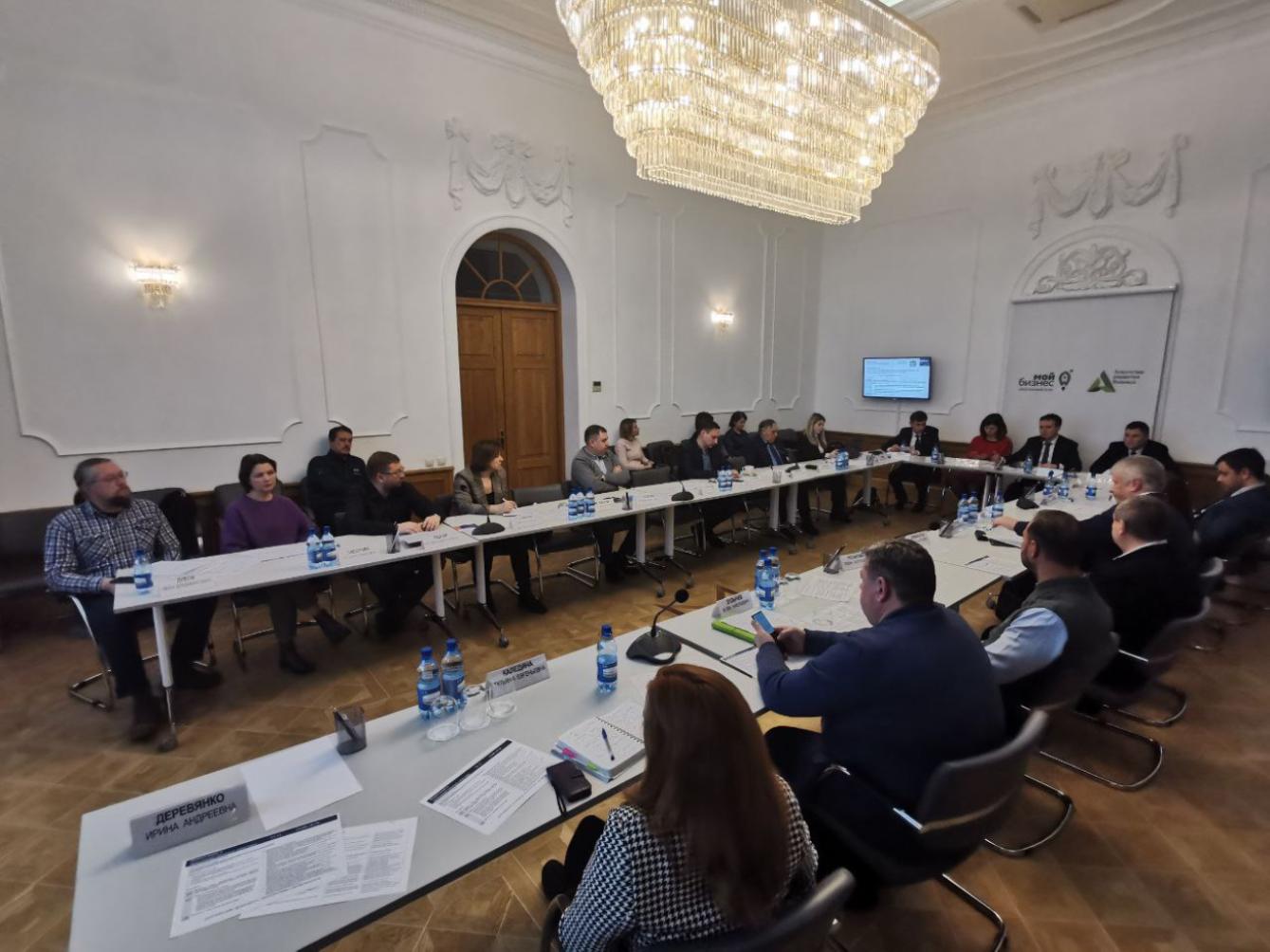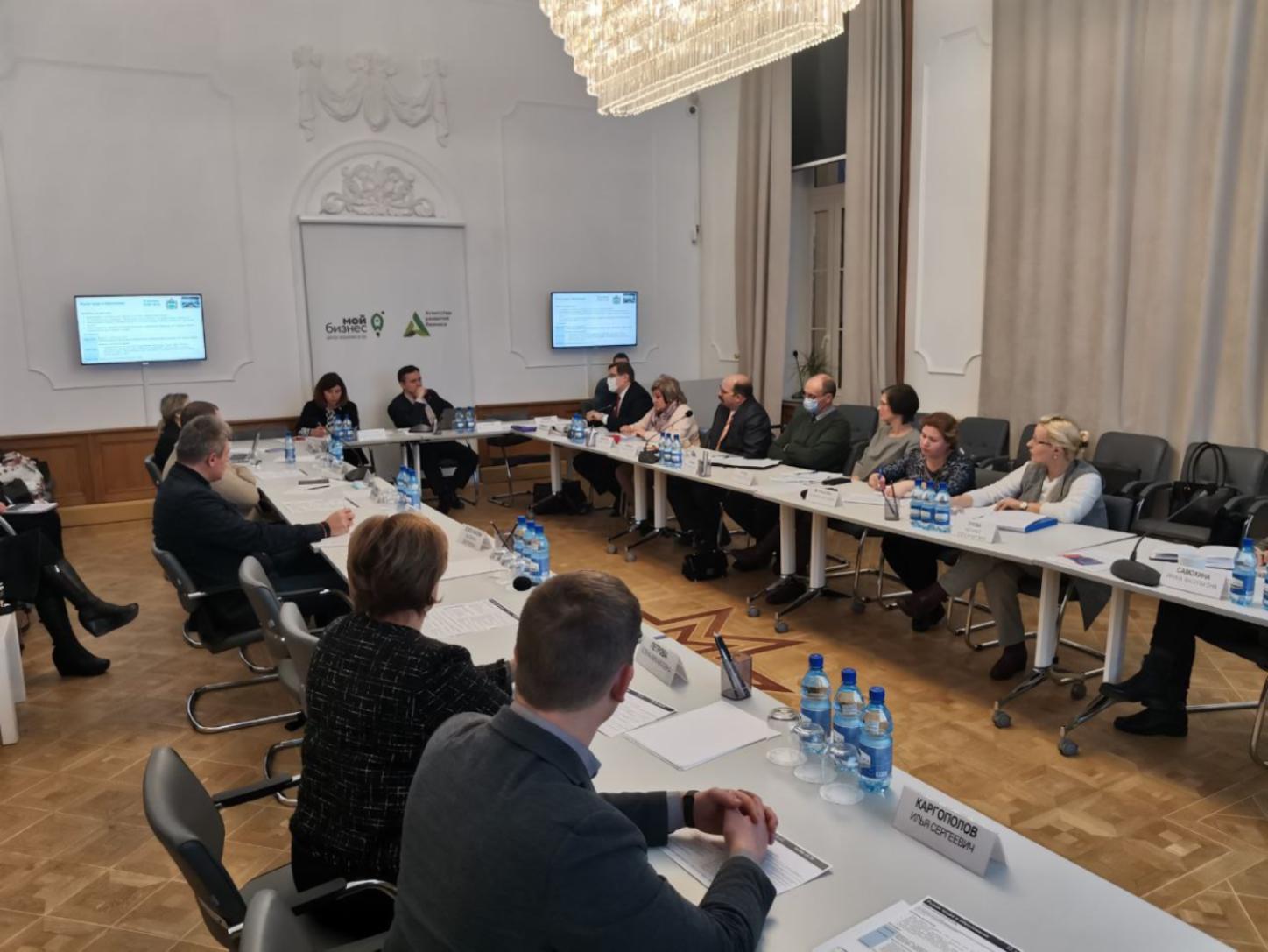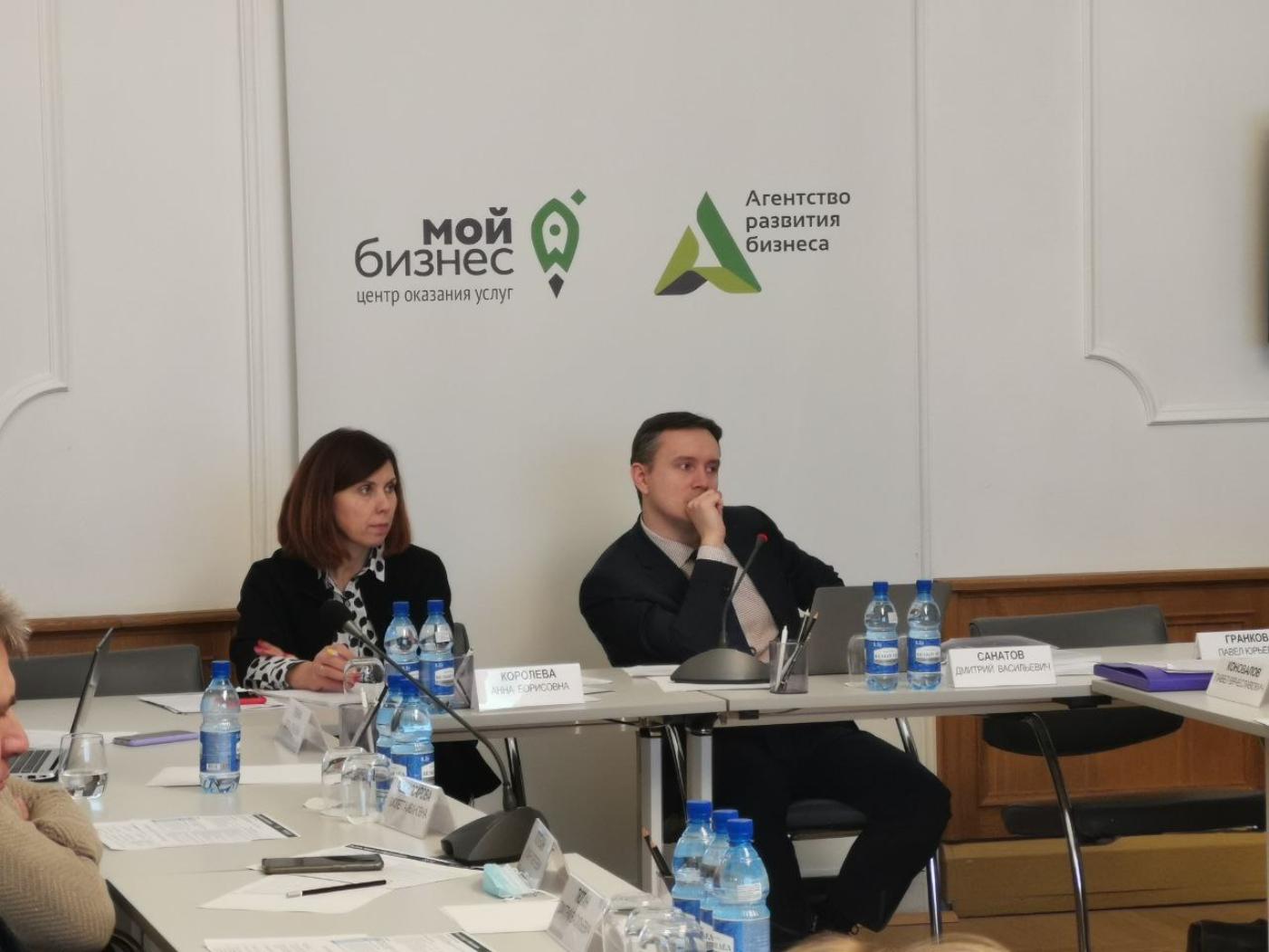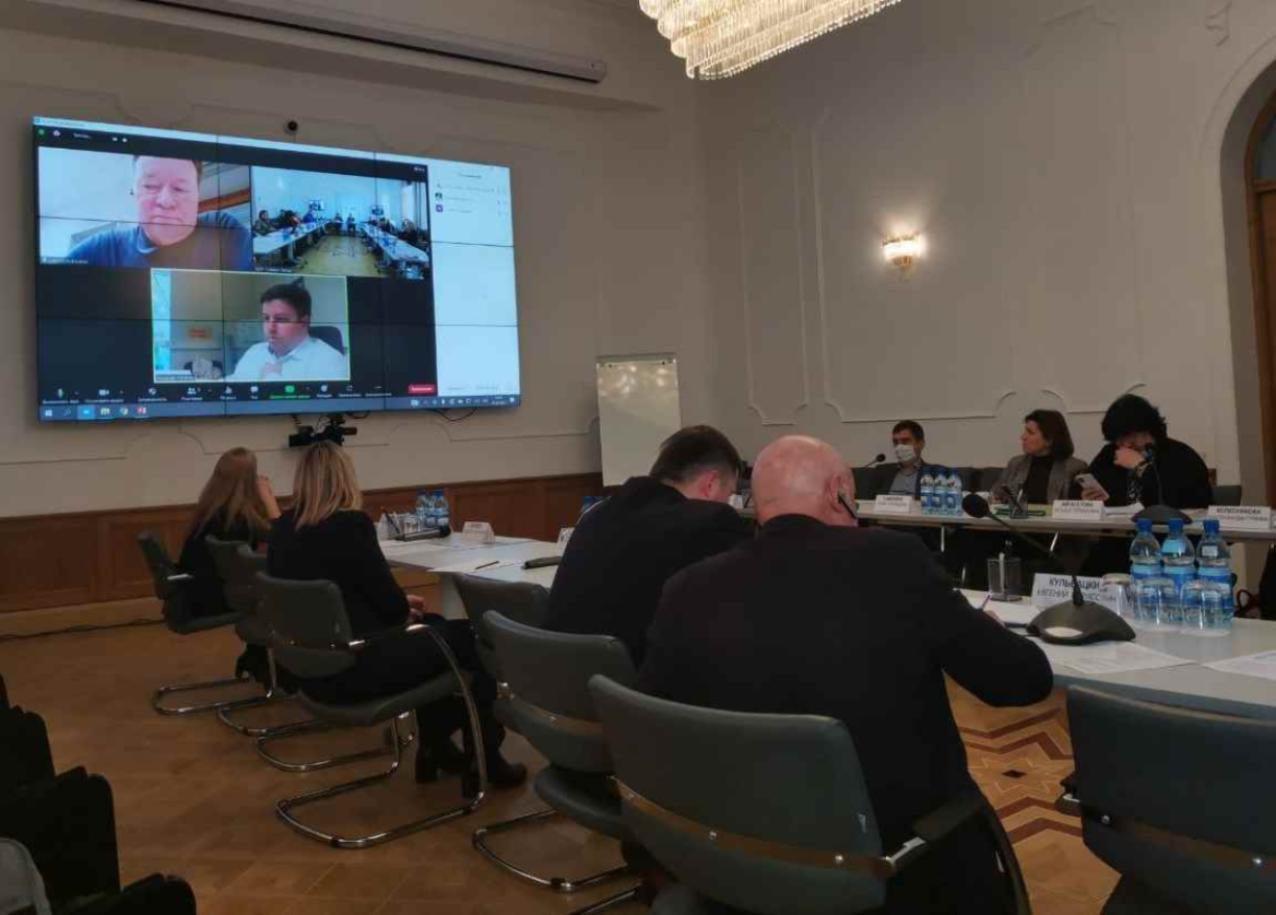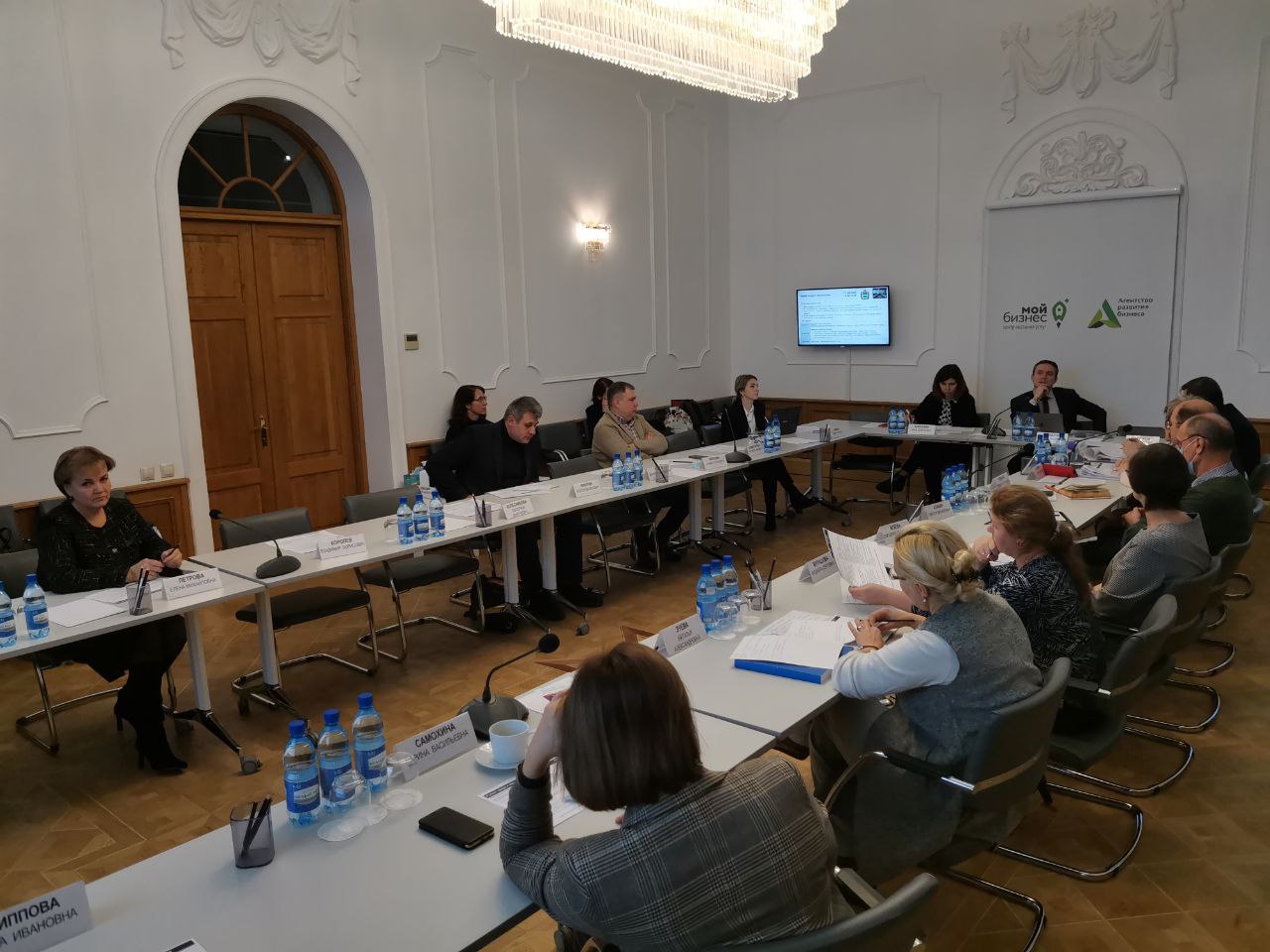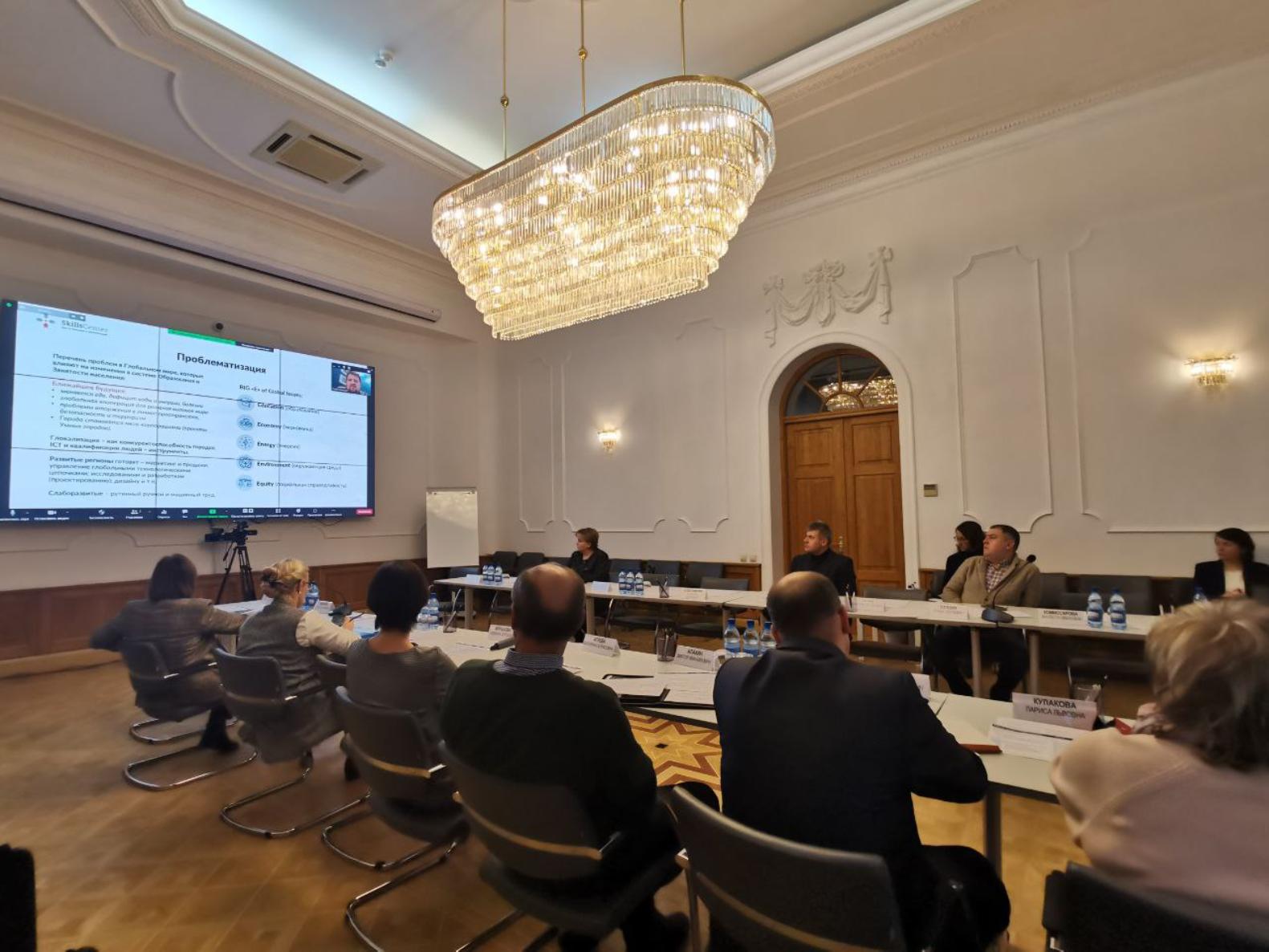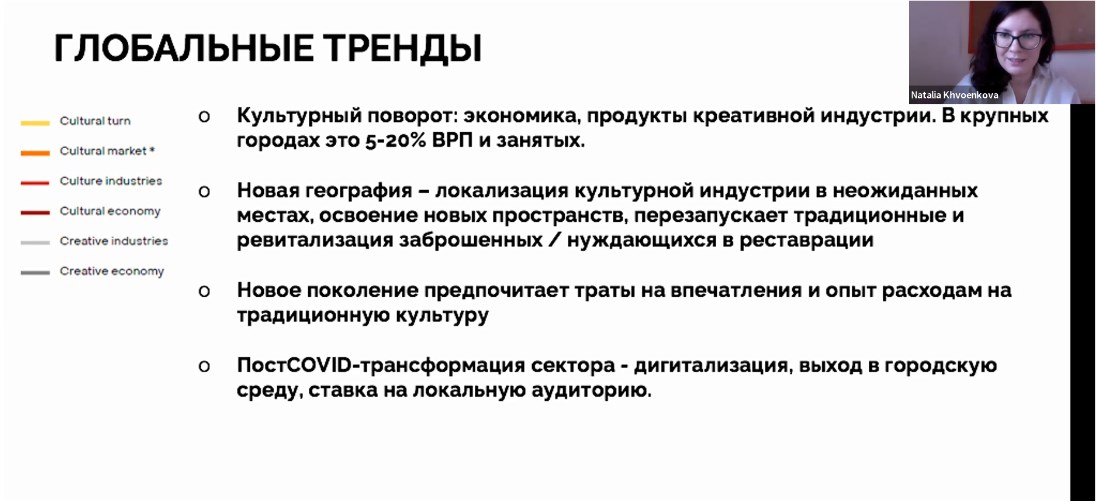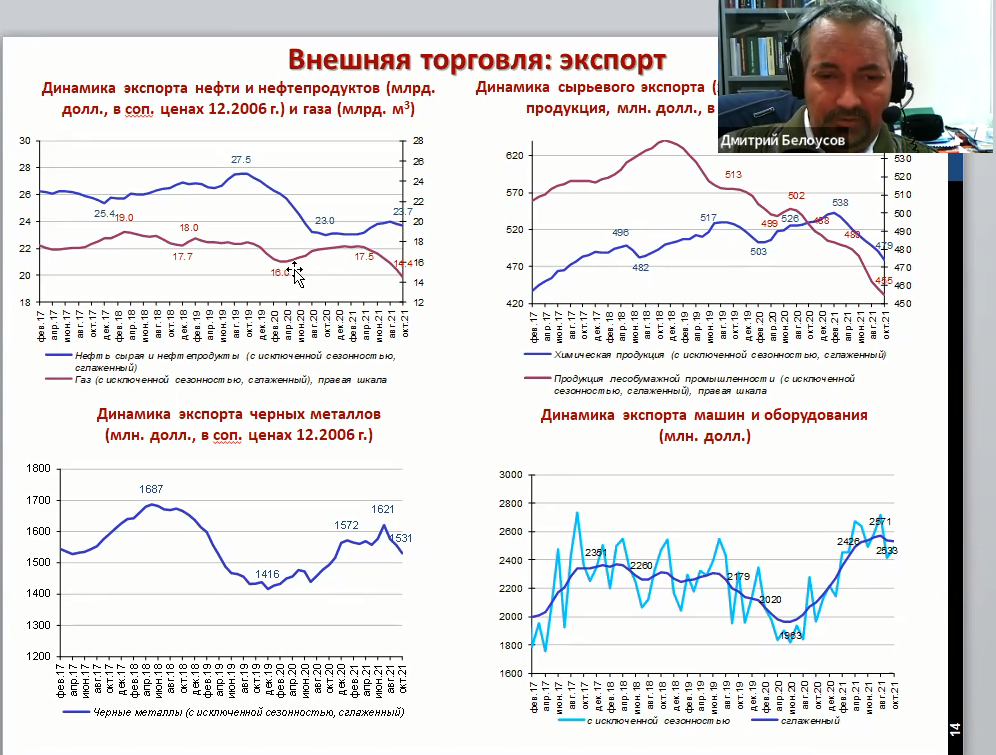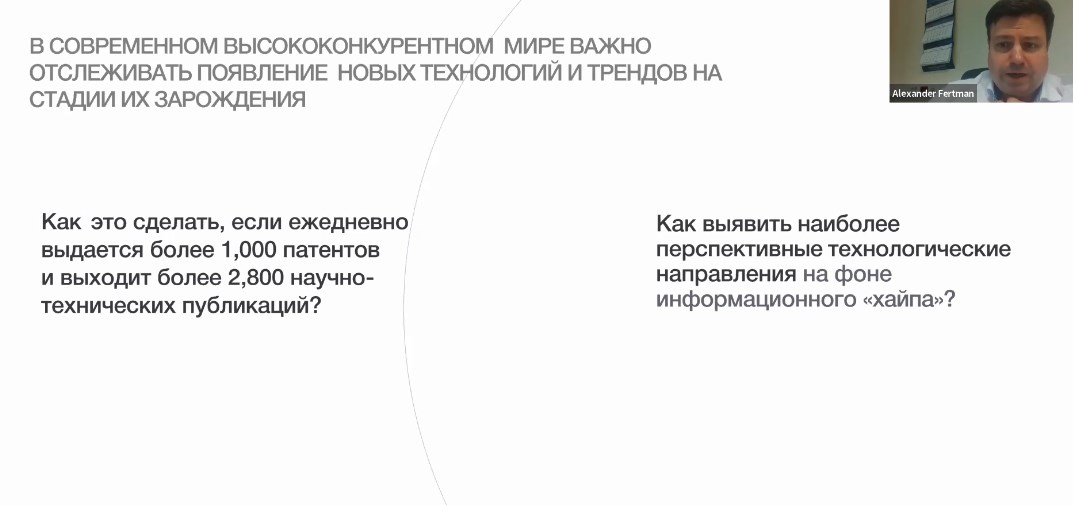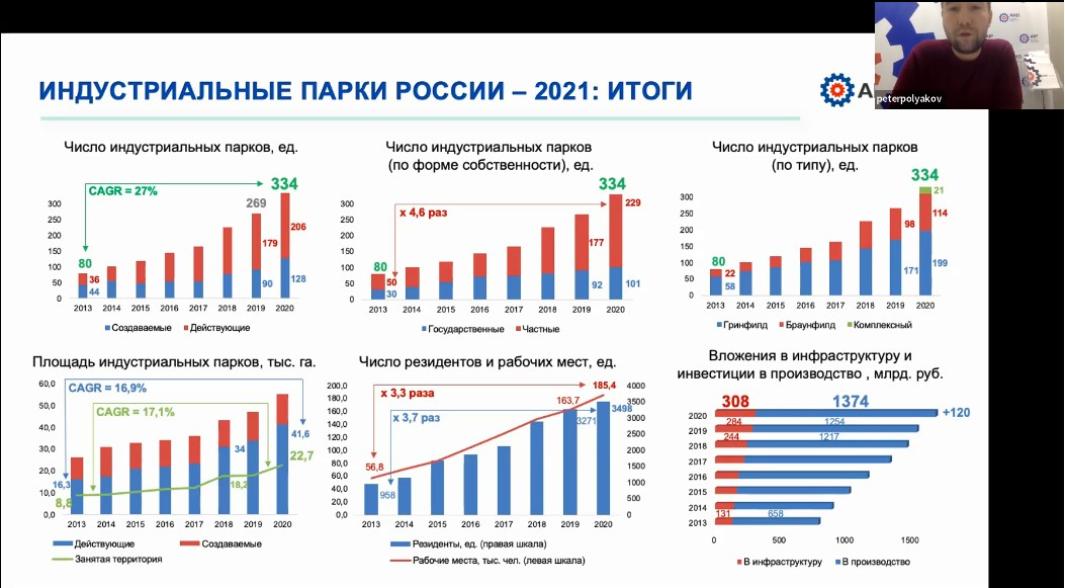NEWS
The Center started developing a Strategy for the Kaluga Oblast until 2040
In 2021, the Center for Strategic Research “North-West”, together with the Government of Kaluga Oblast, launched the development of Strategy 2040. The formation of the new document is driven by the need to take into account changes that are strategically significant for the region: new national-level goals and priorities, changes in global markets in the region's areas of expertise, a generational shift and demand for a new quality of life and other socio-economic trends.
On 21 and 22 December, the Foundation, supported by the Ministry of Economic Development of the Kaluga Oblast, held a series of roundtables to assess the current situation and development prospects of the region.
The roundtables were moderated by Dmitry Sanatov, head of the main office and partner of the Foundation.
More than 70 representatives from ministries, production clusters, development institutes, scientific organisations and universities in the region attended the events.
Within the Round table "Quality of life" experts discussed environmental quality criteria as a basis for ensuring a high quality of life. The Kaluga Oblast has a lot to offer today. This includes the educational environment, modern public cultural spaces (for example, the Cosmonautics Museum and the Innovative Cultural Centre in Kaluga, the Nikola-Lenivets Art Park, the Sparrows Bird Park, etc.) and a variety of social services, including digital ones. However, it is important for the region to consider new trends in the next step, such as cultural geography, ESG, creative industries, and well-being.
As part of the Round table "Investment and Production Clusters" representatives of the region agreed on the need to prepare for a new investment cycle. Nuclear technology, IT, biomedicine, electric vehicles and food industry could be among the region's promising specialisations. One of the challenges is to attract high-tech investors interested in convenient infrastructure and quality human resources to the territory.
Round table “Science and innovations”. The presence of two branches of federal universities in the region is one of the competitive advantages. The development of university campuses will increase interest in science and technological entrepreneurship among students. The participants outlined the problems associated with the attraction and development of scientific personnel, with the provision of a qualified order.
Round table “Labor market and education”. The problem of attracting and retaining personnel in the region, both in the social, creative and industrial sectors, was repeatedly mentioned in the framework of previous meetings. The region will have to synchronize the existing mechanisms of work with the labor market, forecasting employment and provide attractive conditions for work and life.
We thank our experts for participating in the round tables: Dmitry Belousov, Deputy General Director of the Centre for Macroeconomic Analysis and Short-Term Forecasting, for his presentation on macro-trends in the development of the Russian economy; Leonid Vodovatov, Deputy Director of the VEB.RF Institute for Research and Expertise, for his report on trends in the development of the institutional environment in the innovation sphere in Russia; Alexander Fertman, Director of the Skolkovo Foundation's Department of Science and Education, for his presentation on technological trends in the innovation market; Pavel Pavlovich Chernykh, UNDP expert from Russia, expert in World Bank projects, methodologist at the SkillsCenter for the report on employment in the modern world,Elena Yurievna Tibina, head of project area of CSR “North-West”, for the report on environmental quality criteria; Peter Vladimirovich Polyakov, Senior Expert at Russian Association of Industrial Parks for the report on trends in the development of industrial parks, Natalia Khvoenkova, Acting Head of the North-West Branch of the Pushkin State Museum of Fine Arts, for her report on the New Cultural Geography as a strategy for developing the region's cultural potential.
Project management: Sanatov Dmitriy, Tibina Elena
Project Co-ordination: Alexander Purgin, Stepan Gubin
On 21 and 22 December, the Foundation, supported by the Ministry of Economic Development of the Kaluga Oblast, held a series of roundtables to assess the current situation and development prospects of the region.
The roundtables were moderated by Dmitry Sanatov, head of the main office and partner of the Foundation.
More than 70 representatives from ministries, production clusters, development institutes, scientific organisations and universities in the region attended the events.
Within the Round table "Quality of life" experts discussed environmental quality criteria as a basis for ensuring a high quality of life. The Kaluga Oblast has a lot to offer today. This includes the educational environment, modern public cultural spaces (for example, the Cosmonautics Museum and the Innovative Cultural Centre in Kaluga, the Nikola-Lenivets Art Park, the Sparrows Bird Park, etc.) and a variety of social services, including digital ones. However, it is important for the region to consider new trends in the next step, such as cultural geography, ESG, creative industries, and well-being.
As part of the Round table "Investment and Production Clusters" representatives of the region agreed on the need to prepare for a new investment cycle. Nuclear technology, IT, biomedicine, electric vehicles and food industry could be among the region's promising specialisations. One of the challenges is to attract high-tech investors interested in convenient infrastructure and quality human resources to the territory.
Round table “Science and innovations”. The presence of two branches of federal universities in the region is one of the competitive advantages. The development of university campuses will increase interest in science and technological entrepreneurship among students. The participants outlined the problems associated with the attraction and development of scientific personnel, with the provision of a qualified order.
Round table “Labor market and education”. The problem of attracting and retaining personnel in the region, both in the social, creative and industrial sectors, was repeatedly mentioned in the framework of previous meetings. The region will have to synchronize the existing mechanisms of work with the labor market, forecasting employment and provide attractive conditions for work and life.
We thank our experts for participating in the round tables: Dmitry Belousov, Deputy General Director of the Centre for Macroeconomic Analysis and Short-Term Forecasting, for his presentation on macro-trends in the development of the Russian economy; Leonid Vodovatov, Deputy Director of the VEB.RF Institute for Research and Expertise, for his report on trends in the development of the institutional environment in the innovation sphere in Russia; Alexander Fertman, Director of the Skolkovo Foundation's Department of Science and Education, for his presentation on technological trends in the innovation market; Pavel Pavlovich Chernykh, UNDP expert from Russia, expert in World Bank projects, methodologist at the SkillsCenter for the report on employment in the modern world,Elena Yurievna Tibina, head of project area of CSR “North-West”, for the report on environmental quality criteria; Peter Vladimirovich Polyakov, Senior Expert at Russian Association of Industrial Parks for the report on trends in the development of industrial parks, Natalia Khvoenkova, Acting Head of the North-West Branch of the Pushkin State Museum of Fine Arts, for her report on the New Cultural Geography as a strategy for developing the region's cultural potential.
Project management: Sanatov Dmitriy, Tibina Elena
Project Co-ordination: Alexander Purgin, Stepan Gubin


